嫁衣
The Bridal Shroud
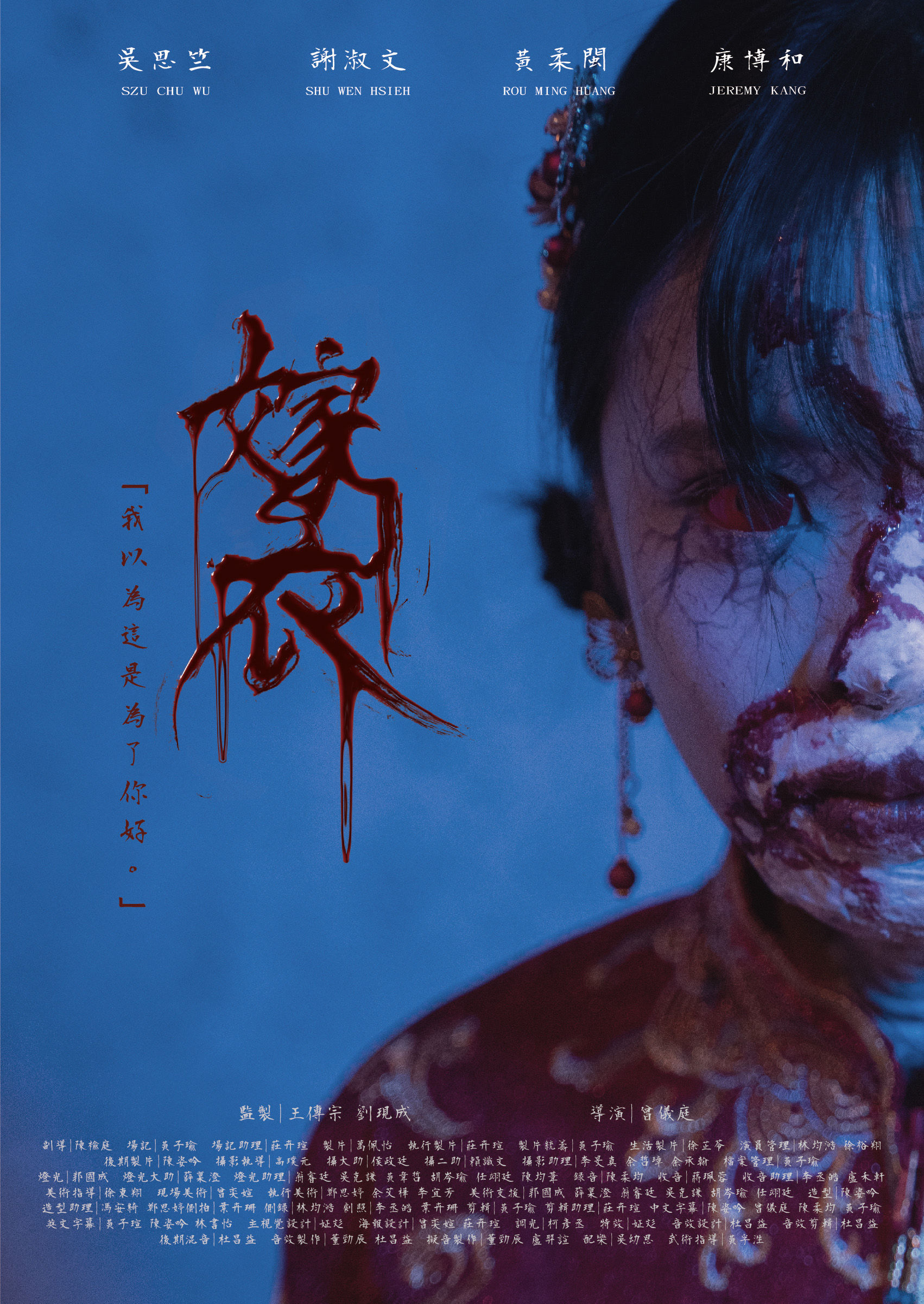
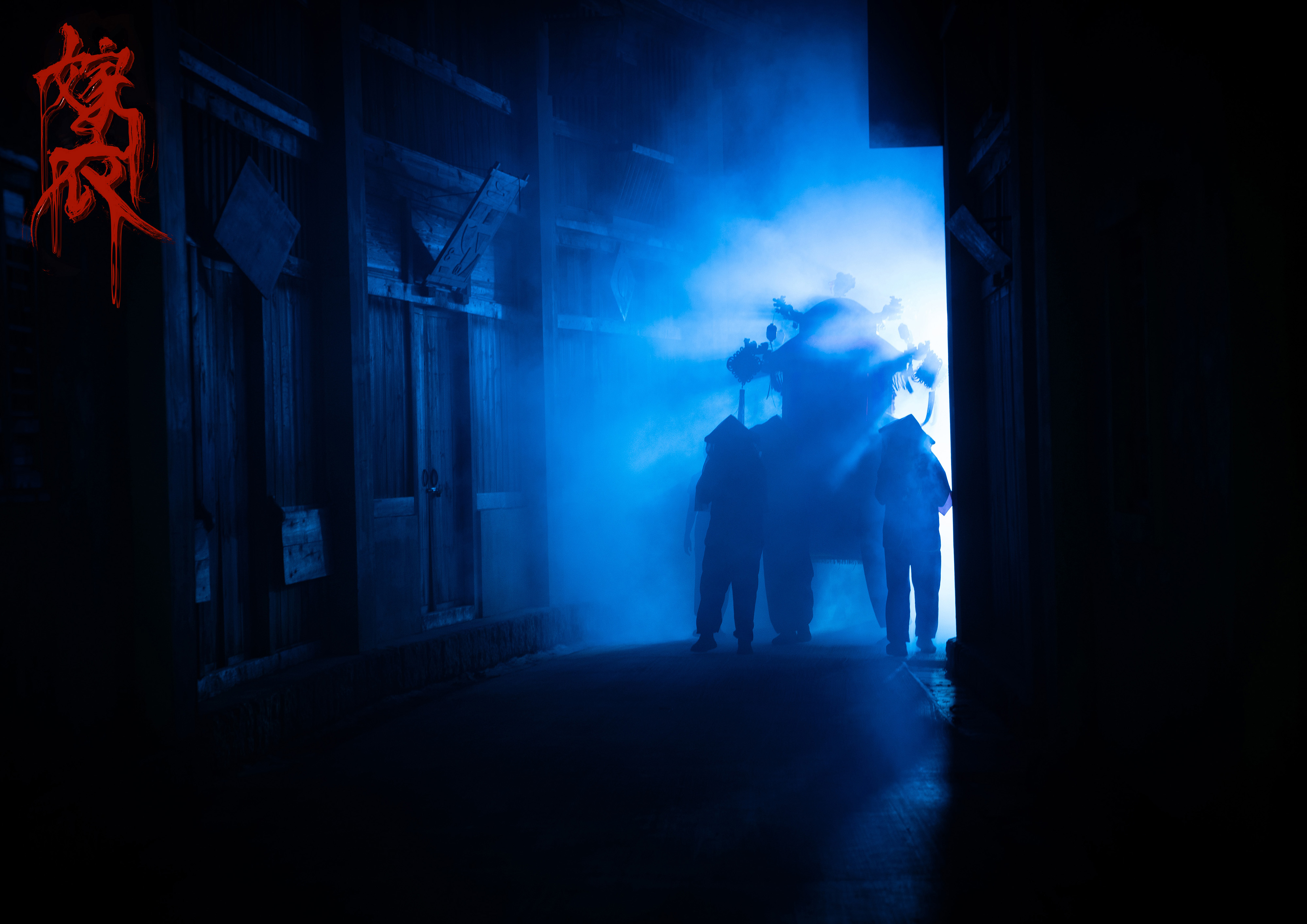
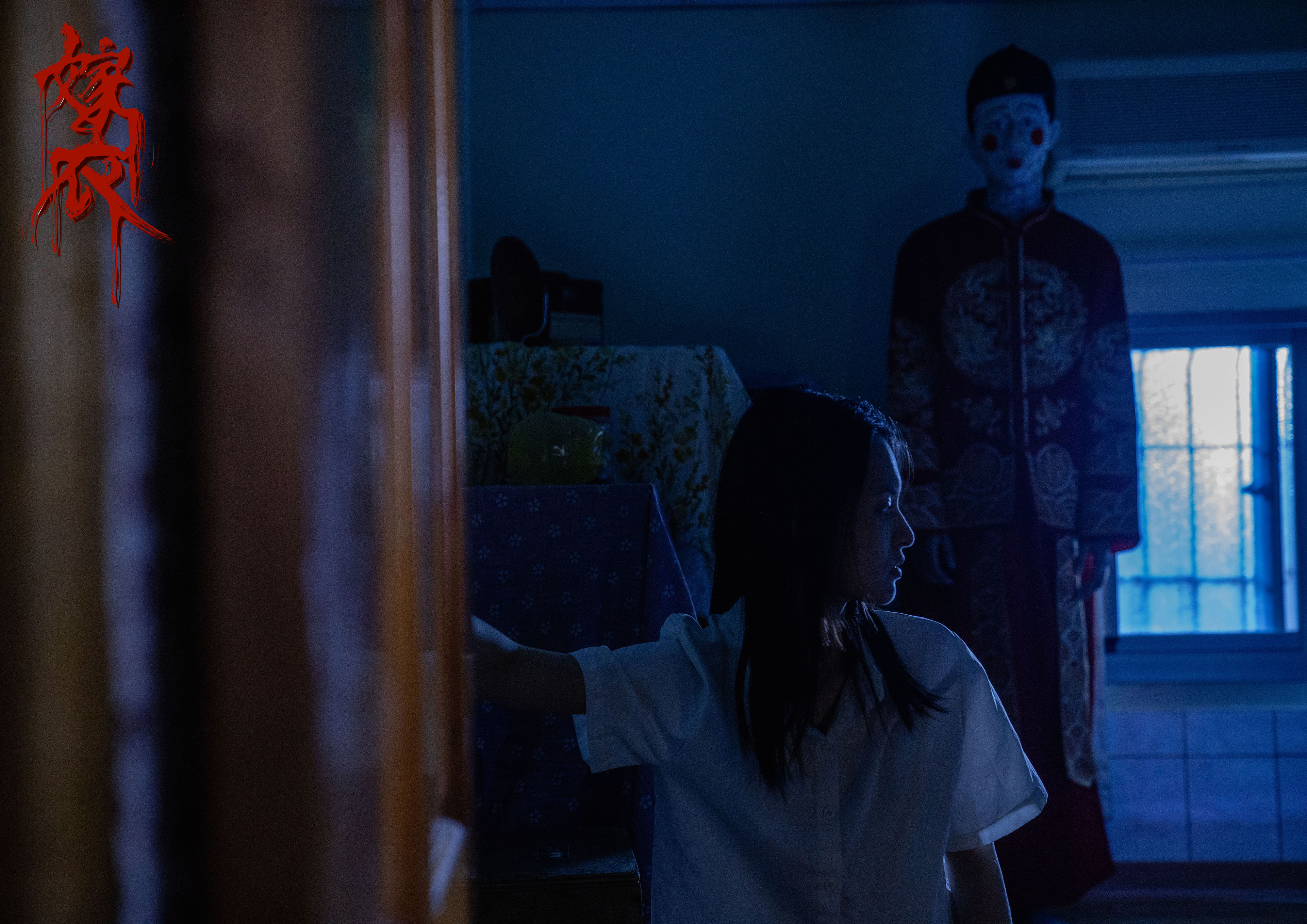
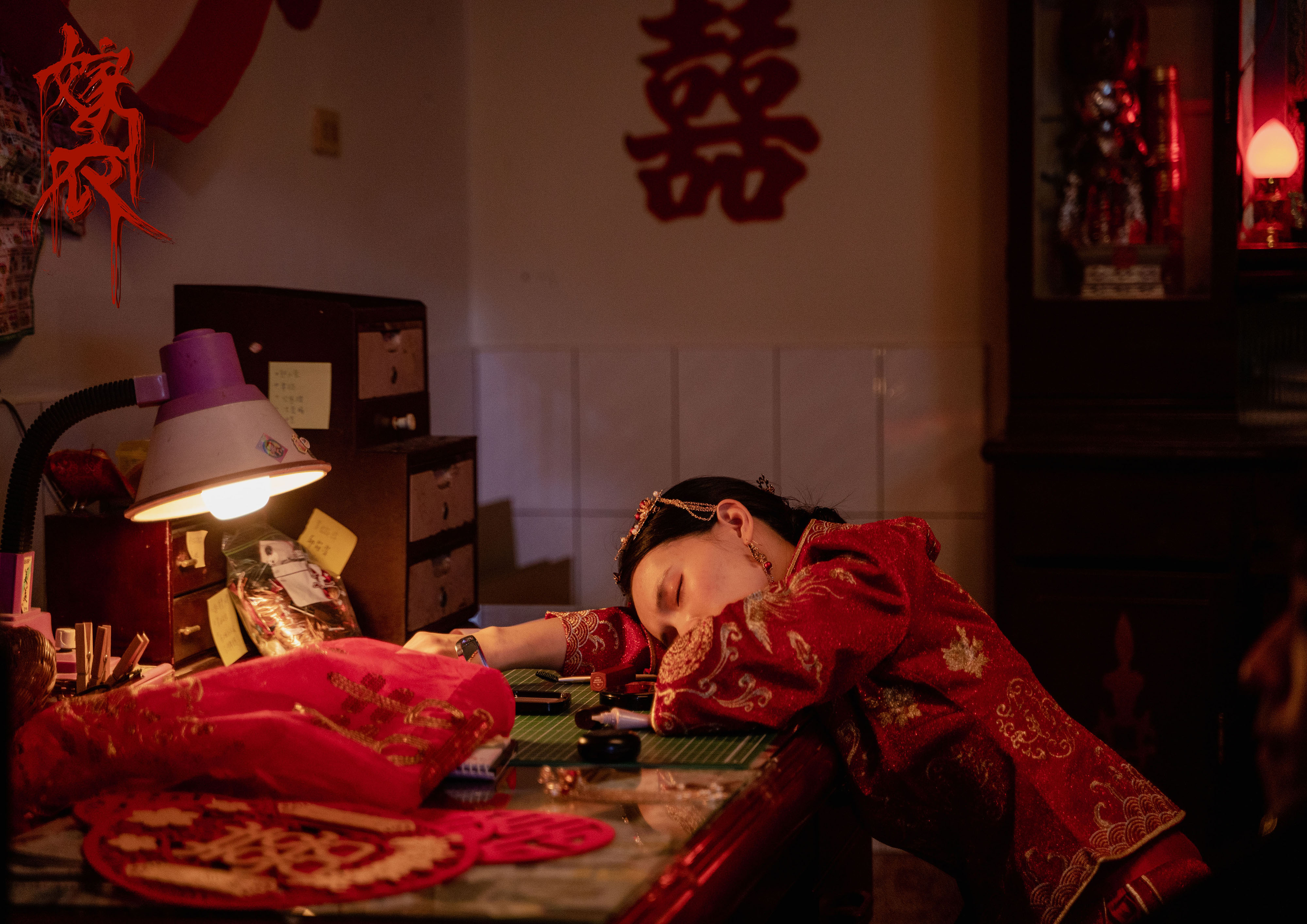
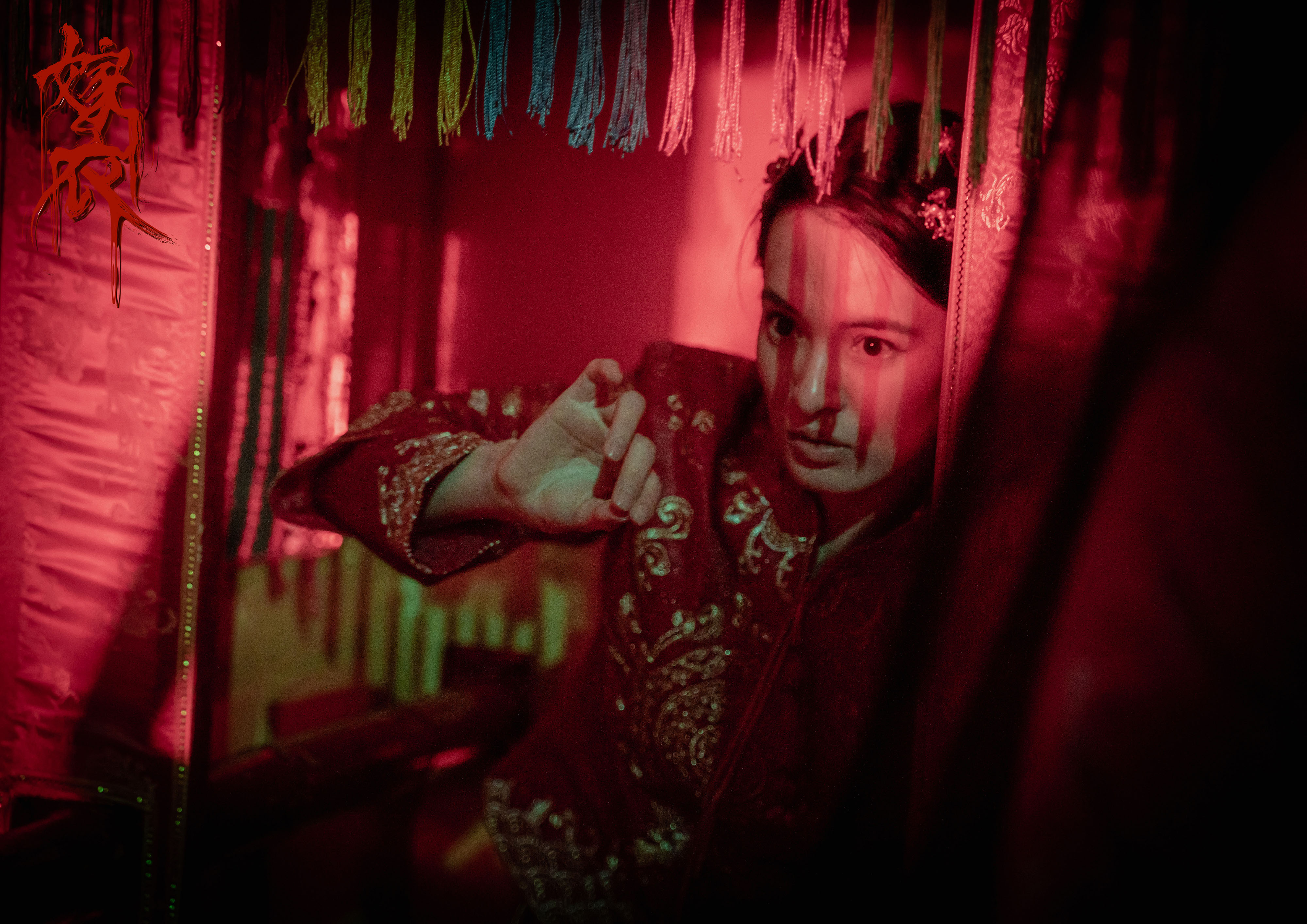
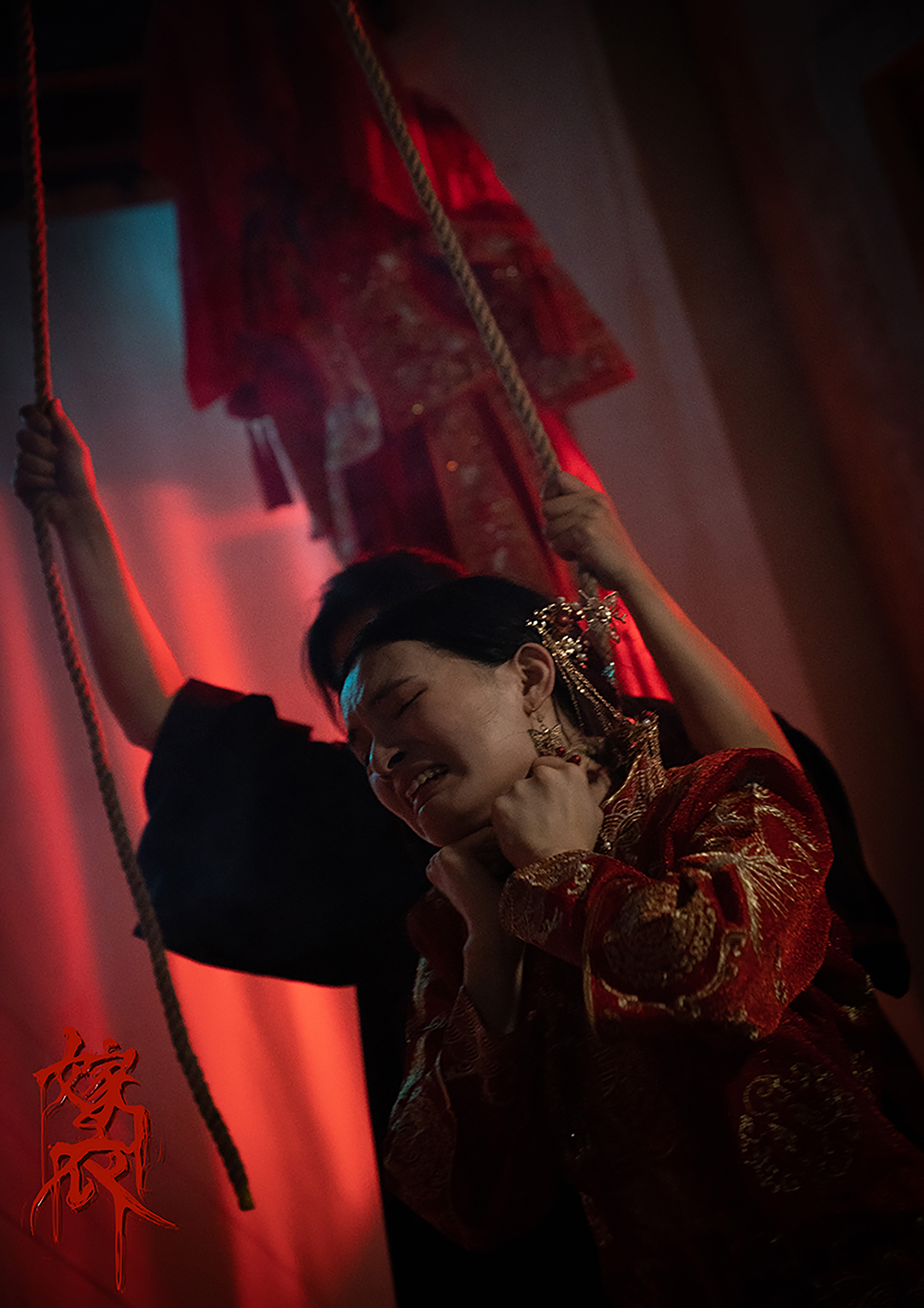
這場婚姻,從一開始就是一場騙局,是一個以「冥婚」為名的圈套。
母親的妥協、父親的期待,都披上了愛與關懷的外衣,卻在少女阿春的命運上刻下一道無法抹滅的枷鎖。為了解決家裡債務,她選擇以沖喜換取全家的生機。然而,那場披著喜悅色彩的婚禮,實則是一場生死搏鬥。
聘金是紙錢、轎車是花轎,劉府的風光不過是一座祭奠新娘的祭壇。在命運交織的紅線裡,她是唯一的活人,被迫與亡者結合。而這不僅是一場與幽冥的契約,更是一個操控她一生的詭計。
當家庭債務與命運交錯,阿春掙扎於幻境與現實之間,尋找救贖出口。喜慶儀式映襯著人性的脆弱與家庭情感的重量。
「我以為這都是為了妳好。」
這句話,真的代表正確與善意嗎?還是這不是選擇,而是一副無形的枷鎖。
The Bridal Shroud
This marriage was a deception from the very beginning—a trap disguised as a **"ghost wedding."**
A mother’s compromise and a father’s expectations were wrapped in the guise of love and care, yet they became an inescapable shackle on the fate of a young girl, **Ah Chun**. To save her family from debt, she chose to marry the dead in exchange for her family's survival. However, beneath the joyous facade of the wedding lay a battle between life and death.
The **bride price** was **joss paper**, the **wedding car** was a **traditional sedan chair**, and the grandeur of the **Liu family** was nothing more than an altar for a sacrificial bride. In the intertwining threads of fate, she was the only living soul—forced into an unholy union with the deceased. Yet, this was more than just a contract with the underworld; it was a sinister scheme that sought to control her entire life.
As the weight of family debt and fate intertwined, Ah Chun found herself caught between illusion and reality, desperately searching for a way out. The festive rituals only served to highlight the fragility of human nature and the burdens of familial duty.
**"I thought this was all for your own good."**
But does this statement truly represent kindness and righteousness? Or is it merely an invisible shackle, leaving her with no choice at all?
崑山科技大學 視訊傳播設計系
(四年級)
陳姿吟
崑山科技大學 視訊傳播設計系
(四年級)
黃子瑜
崑山科技大學 視訊傳播設計系
(四年級)
陳柔均
崑山科技大學 視訊傳播設計系
(四年級)
陳褕庭
崑山科技大學 視訊傳播設計系
(四年級)
曾奕媗
崑山科技大學 視訊傳播設計系
(四年級)
侯政廷
崑山科技大學 視訊傳播設計系
(四年級)
賴識文
崑山科技大學 視訊傳播設計系
(四年級)
萬佩怡
崑山科技大學 視訊傳播設計系
(四年級) 指導老師 王傳宗
劉現成